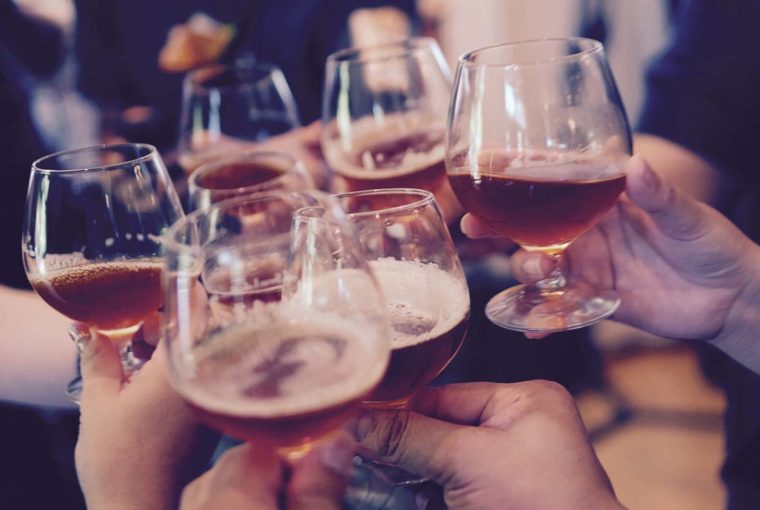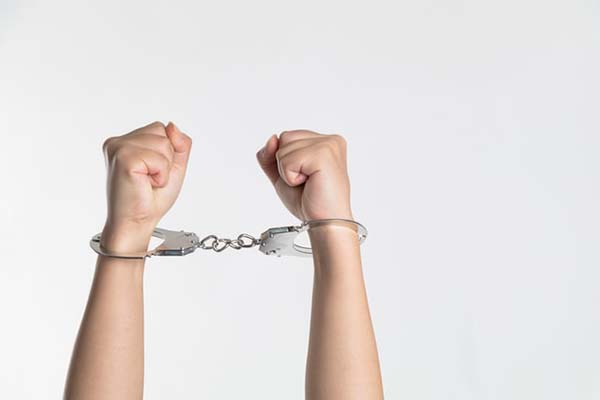Alcohol Lowers Inhibitions
As one of the most commonly consumed drinks in the world, alcohol is known for its depressant properties, acting on drinkers’ mental and physical well-being. It can influence moods and emotions, as well as the way we make decisions. The more alcohol one consumes, the more impaired their way of thinking becomes, which increases the risk of aggressive behavior as well as risky actions. One may even drink until they knock out and experience memory loss from the night before.
It can curb clarity in thought and cloud one’s judgment in decision-making, which may put oneself in potentially dangerous situations. This is because of the way alcohol influences our brain chemistry and affects not just thought and memory but also our movement capabilities. This can bring about some heavy side effects if one is not careful. And for those wondering if they might have an alcohol dependency, be sure to research on the common symptoms of substance abuse.
How Alcohol Influences Chemicals In The Brain
Alcohol increases Gamma-Aminobutyric Acids (GABA) in our brains, which creates side effects such as a drop in body temperature and heart rate. It functions as an inhibitory neurotransmitter, allowing one to feel more relaxed as it reduces anxiety and stress levels.
It also increases dopamine levels which is responsible for pleasure signals in our brain and helps to create a sense of “high” when one drinks. According to Psychology Today, alcohol increases norepinephrine levels as well, which stimulates feelings of arousal in an individual. Not only that, but it also reduces activity in one’s prefrontal cortex which clouds judgment and can increase risk when it comes to our behavior. One may even feel more impulsive. This is because alcohol slows down and interferes with our brains, which affects the way our brain processes information. One may not be able to think clearly or make out how they are feeling, and hence increasing the potential for risky and dangerous behaviors.
As the prefrontal cortex of the brain is responsible for our decision-making, impairing its functions with alcohol can impact the way we carry ourselves. This may be the reason for uncharacteristic behavior and speech when one is drunk — acting based on inflated emotions and sometimes even violence; it is easy for one to get carried away and cause problematic situations than if one was sober.
The Risks of Alcohol
With lowered inhibitions, one may make decisions without considering their costly consequences as enhanced emotions may influence one to be more impulsive and prioritize pleasure over safety. This may include the risk of engaging in risky behavior such as becoming more violent and participating in fights; one may commit crime, try drugs, or become victims of crime. It is also possible that these actions may cause one to get caught up in accidents and sustain physical injuries, and participate in sexual activities without prioritizing their or others’ safety first.
Alcohol is a major contributor to the crime scene in the USA. It has been traced back to nearly half of crimes committed, exhibiting that consuming alcohol can lead to dangerous behaviors like sexual assault and violence. Although one may appear more friendly and sociable when drunk, it can also fuel you to take actions that you may avoid when sober as it reduces fear and personal awareness. Without proper supervision, this can escalate situations quickly when the wrong decisions are made.
Likewise, one may also become a victim of crime when intoxicated as alcohol impairs one’s movement and body functions. With a hazy mind, it is easier for others to take advantage of drunk individuals, which can result in sexual harassment and even rape. It is difficult for someone to give consent or fight back when drunk; and even in situations where consent is given, unsafe sex may be conducted. This puts one at risk of many dangers such as unplanned pregnancies or contraction of diseases such as sexually transmitted disease (STD).
Apart from participating in risky actions, one may also make uninformed decisions about other forms of risky consumables. When sober, one may not consider taking drugs at all. However, alcohol consumption makes it easier for one to feel less afraid and more open to taking risks. It is important to know that the risks of combining drugs and alcohol together are unpredictable, and can prove to be extremely risky especially if they result in negative side effects. As drugs continue to suppress one’s nervous system, too much suppression from alcohol and drugs may lead to an overdose and potentially even death.
They can also impair one’s mental abilities and compound the effects of alcohol, causing one to become even more intoxicated. The results of mixing are fairly unknown as they differ from person to person. However, it is a common consensus that the consequences are usually risky and dangerous, so it is highly recommended to avoid the combination as much as possible.
The Next Day
If you consumed a large amount of alcohol or drugs, you may wake up the day later not remembering anything while accompanied by a hangover. It is common to not recall one’s location or events that occurred the previous day.
If you do find out that you are a victim of any crime or sexual assault, it is important to report it to the police and seek medical attention. Remember that being intoxicated means that you were unable to give informed consent and hence could have been taken advantage of; do also get tested for STDs.
Some actions that you may have taken while drunk could cause some regret due to their consequences. You may have to fix some relationships or apologize to people. But do know that it is normal for drinkers to regret their actions and everyone has made mistakes under its influence before. It is more important to take action to prevent such cases from happening again in the future.
You could consider drinking with a group of responsible drinkers such as family or friends, with some participants remaining sober to help maintain safety in the group. Drinking after you have eaten and carefully spreading out the drinks can also slow down intoxication while allowing you to still enjoy your time. The less amount you drink at a slower pace is the best way to be a responsible drinker and prevent bad situations from arising.
Conclusion
If you find that you cannot reduce your drinking habits, then you might have alcohol dependence or addiction. It may be useful to seek professional help such as consulting a doctor or seeking therapy if it continues to worsen.





